You know the old adage that thoughts become things? Well, my guest on today’s show, Ross Hamilton, has taken this concept to heart – applying his focused intention to manifest a compelling – and incredible – business and life.
I had the pleasure of working with Ross when he hired me to help with SEO for Connected Investors, a company he founded and recently sold for a very impressive sum!
Our discussion begins with Ross sharing his origin story. Once a semi-professional BMX racer, a catastrophic injury led him to reinvent himself in real estate and technology. When it comes to the level of success Ross was able to achieve, he emphasizes the power of intuition, daily journaling, and creating a “mental mastermind” of advisors, including your future self. Ross asserts that by writing as if the desired outcome is already achieved, you program your subconscious mind. He talks about writing a book on becoming a real estate millionaire before doing his first deal. He also signed up for an Ironman triathlon despite not knowing how to swim long distances. Since exiting Connected Investors, Ross now focuses on affordable housing issues through philanthropic nonprofits. His unconventional wisdom goes beyond tactics to true transformation, making this an absolutely must-listen episode. So, without any further ado, on with the show!
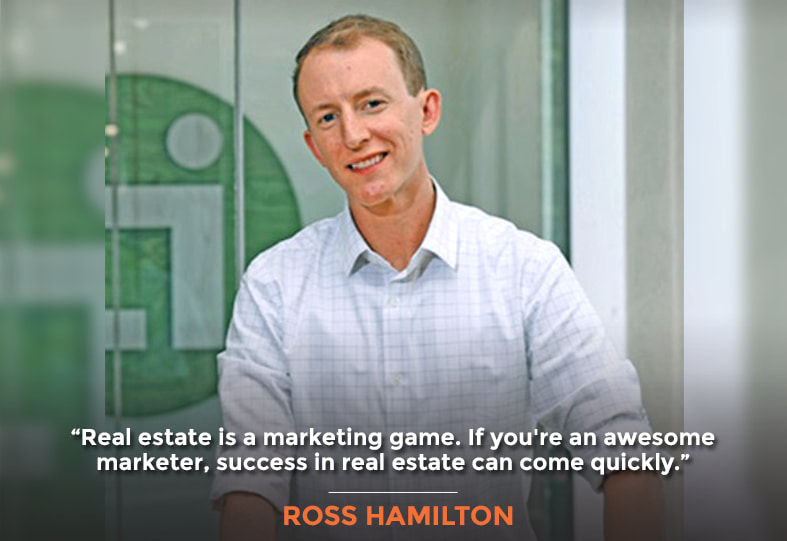
In This Episode
- [02:23] Stephan interviews real estate mogul and tech entrepreneur Ross Hamilton, who shares his origin story and the role of marketing in his success.
- [09:12] Ross sold his company at age 39 and is now reevaluating his priorities, considering hobbies and helping others.
- [12:55] Ross talks about his portfolio, highlighting his real estate investments and the advantages of using Connected Investors.
- [20:30] Ross discusses real estate investing and provides tips for beginners.
- [22:08] Ross explains microflipping or wholesaling as a way to start generating passive income in real estate.
- [27:39] Ross emphasizes the importance of SEO in business. He and Stephan elaborate on the significance of pattern recognition and utilization in SEO.
- [34:37] Ross and Stephan share the power of journaling in their success, including the idea that habits become thoughts and can lead to positive or negative outcomes.
- [49:06] Ross shares his experience of signing up for an Ironman race as a forcing function to stay motivated and accountable.
- [50:49] Ross describes how he practices the future self-meditation.
It’s great to have you on the show, Ross.
Yeah, I’m excited to be here, and I love marketing because if you don’t have marketing, nothing else works. That’s my core competency and how I was able to do well in real estate and in tech. Just having that marketing first mind. I’m really excited to be here, share, and just give all I can.
Awesome. Let’s start with your origin story. How did you end up being a real estate mogul?
It is an unfortunate situation to answer very quickly. Real estate is one of the best options for people with limited options because you can make millions of dollars. You don’t need a degree. You just need to hustle. I was a former semi-pro BMX rider who rode with Dave Mirra every day. He moved to my town. He’s like the Michael Jordan of BMX. He was a buddy of mine. I got really good fast because of my drive and because of the people that I surrounded myself with.
I learned a lot in BMX, and even though I got hurt and ultimately had to step out, I started to understand risk, and risk just became part of every single day. I would ride every day for at least eight hours. Every time I hit a jump, there was always a little bit of risk there.
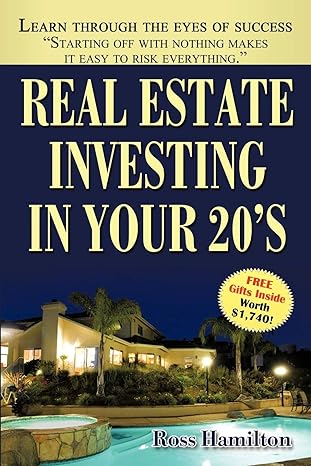
I think that really helped with my entrepreneurial journey because I wasn’t scared to take a few falls. Ultimately, my big fall in BMX, which I’m being honest, I was never going to be one of the top five, led me to real estate and into tech, where I was in the top five in the real estate side.
Your story reminds me of Draye Redfern. Do you know Draye?
He’s a very successful marketer, and he had an unfortunate accident as a cyclist racer professional. He was on top of the world at the time, and everything fell apart. It was a blessing in disguise but certainly didn’t feel like it at the time, but he shared his story on this podcast. We talked about marketing and so forth, but he went into his origin story first.
I’m going to have to listen to that.
He’s inspiring. I know him through Genius Network, Joe Polish’s mastermind.
Masterminds have been a big part of my upbringing as well. In BMX, you had that little group of people you rode with, and I didn’t realize it, but it was my mastermind. The higher caliber person in your mastermind, the faster you seem to excel. I was doing okay, then all of a sudden, I was riding with Dave Mirra every day, and the impossible became possible. I remember this one time he had just built his skate park, and he’s like, “I’m going to do a backflip and touch my tire on the ceiling.” I’m like 16 years old. I’m like, “No way.”
By the end of the day, the ceiling was filled with tire prints. I would have thought that hitting your tire to the ceiling would stop your rotation, but he did it. Just being around those people who are able to do those things where you have a limited belief in and just keep breaking through that, I think at a young age, just watching that happen over and over again just helped me be optimistic and become one of those people that could touch your tire to the ceiling.
Wow. How did you meet him?
Masterminds have been a big part of my upbringing.
He moved to Wilmington, North Carolina, from New York, and there was only a small ragtag group of BMXers. We heard he was coming this way, and we hounded him. He said, “Great, why don’t you help me build a skate park? Pick up that drill.” It was right before he got really popular.
He was doing the rags to the richest thing himself. He had suffered a huge injury at a young age and was told he’d never be able to ride his bike again. He pushed through that as well. We just met him, and then I provided value to him. I just started working for him for free and hanging out with him. Before you know it, we were buddies.
That’s cool. Do you just keep in touch with him?
God bless his soul. He has passed. It was pretty tragic. It had nothing to do with BMX, but that was a tough day.
Was that recent or years ago?
It was maybe five or six years ago. He took a lot of hits to the head and had some of the same injuries as football players would get. I forget the exact name of it, but it caused a lot of issues in his life, and it was just a downward spiral. He was at the top of his game. He was a rally racer. He did well in the rally. He did really well in boxing. He took his habits into other disciplines and was at the top of his game, which was really cool to be around an athlete like that for such a long time at a very young age.
It reminds me of what you were saying about what happens to football players that happen to him with a brain injury. There’s a fascinating study that Dr. Daniel Amen did on professional football players. He was a guest on my other podcast, Get Yourself Optimized. He would do these imaging scans of all players, and they’d be getting dementia, depression, memory loss, and all that stuff from the head trauma.
That’s exactly what Dave suffered through.
Yeah, that’s tough. How we met was through Dustin Mathews, who is also a past guest on this podcast, Episode 96. Coincidentally, an amazing human and a brilliant marketer. I just find that there are no coincidences. Do you keep in touch with Dustin?
I almost jumped in and interrupted you because Dustin actually moved right down the street from me.
He’s in the other room right now.
He’s in the other room. Dustin and I met when I was maybe between 20 to 23. We just stayed in touch over the years. He wound up working for Connected Investors for a little while. Then I moved to Asheville, North Carolina. He didn’t move here because of me, but he wound up moving here as well. We stayed in touch. He’s a buddy and a mentor of mine in the marketing world. It’s great having them around the corner.
When you build a big business, it can become a monster, so you have to keep feeding it.
When you move somewhere brand new in your 40s, it’s tough to make friends. I was at the coffee shop the other day, and I saw this really cool van with a bunch of bikes on the back. I sparked up a conversation with the gentleman because I ride mountain bikes now. I got his phone number, and I came home, and I told my wife, “I got a guy’s number.”
She’s like, “Is he sweet?” I’m like, “He seems really nice.” She’s like, “Congratulations, honey. Are you going to call him?” I’m like, “Should I wait? Should I text him now?” Moving out here, starting over again, and building a good group of friends who share similar habits outside of business is really challenging for me because my whole life, if it wasn’t about business, I didn’t have time for it. It had to be brief.
Now that I’ve kind of completed the full circle, it’s about diving back into hobbies and helping other people and doing all that. That’s why I’m doing these shows to help out in any way I can.
You had a successful exit. Did you contemplate retiring or just sitting on a yacht some year somewhere? What were you thinking when you decided to sell your company?
I sold at like 39–40. That’s kind of a midlife point, to begin with. It was very interesting. A lot of introspection, a lot of just learning meditation, and just trying to figure out, “What do I want to be now that I have unlimited capital and unlimited resources?” I didn’t look at it as retirement. I looked at it as a re-wirement. You don’t need a huge exit to do that.
What that means to me is that you get to reprioritize everything. Because I had prioritized business miles ahead of everything for a long time, some are a necessity because when you build a big business, it can become a monster, so you have to keep feeding it.
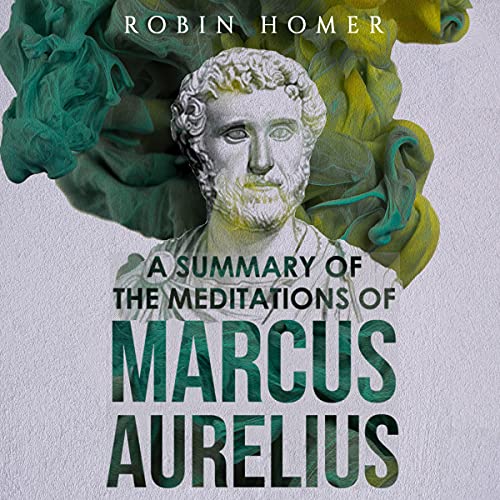
I didn’t buy a yacht. I didn’t buy a plane. If it flies or floats, it’s cheaper to rent it, but I did spend some time on some yachts. I enjoy the NetJets and Wheels Up subscription, but I believe the full circle of an entrepreneur.
I started with nothing, no education in real estate or tech, and built a network of people. Now I’m coming back, and I’ve started my nonprofit saving homes that will help essentially single parents save homes that they already own or help them get in homes. I got my big break in real estate. That’s where I built my base foundation. At a young age, I had 50 properties, so that gave me the financial freedom to start a tech company to start other things.
I’m a firm believer in just how important it is to have a real estate portfolio, and anyone who owns real estate is a real estate investor. If you own a property, you’re a real estate investor. If you paid full price, you’re just not a very good real estate investor. That’s the only difference to me.
What’s happened recently, and you’ve probably seen this, is you have the haves and the have-nots. The haves have real estate. They own multiple real estate, and they got a nice appreciation bump. They got in before interest rates shot up. You have the have-nots, the people who maybe they’re indecisive or, through life struggles, they couldn’t get a property.
Now, the income gap has just jumped because the properties are more expensive. Interest rates are higher. It sucks for a lot of people just starting or people that are a little down on their luck for whatever reason. I’ve come back with all my real estate knowledge, my expertise, and my ability to market. Marketing is a big part of what I’m doing and branding.

We’re rehabbing affordable housing and helping individuals get into homes because real estate is great. You got to live somewhere anyway. You go to sleep for 20 years, you wake up, and you have hundreds of thousands of dollars that you can pass down to other generations or leverage in all of these different ways.
Real estate is a really important part of your portfolio. If you’re listening to this and you haven’t invested in real estate, it’s not too late. I don’t want that to be the takeaway here. It’s just right now, and you have to make something happen. If you can figure out how to buy real estate at discounts, then you can go back in time and get those properties. Roll up your sleeves a little, and you can make it happen.
Anyway, that’s what I believe the full circle of an entrepreneur should be. Make a lot of money, come back, and help many people. I didn’t relax for very long, whatever relaxing means, but my outlook on life is completely different. I have a much more calm vibe and tone about me than I used to when I had a big monster I had to keep feeding.
How many properties do you have now? You had 50 back in the day. Do you still have a portfolio?
I firmly believe in just how important it is to have a real estate portfolio, and anyone who owns real estate is a real estate investor.
I’ve been through that portfolio a few times, but I have just shy of 200, there are coming in and going, one way or another. That’s plenty, and I’m not aggressively growing that, but I do find myself buying at least a property or two every month, one way or the other. What’s good is once you have a lot of capital, real estate is just a bank account. I can put my money in the bank, or I can just hold it in this property. There’s not much difference in my head between owning real estate and having that money in a bank account.
Except the bank is kind of sketchy.
Yeah, exactly. I have more control. Even when I didn’t have money, I didn’t let that stop me because if you can find a good deal, money’s never a problem. I would do creative partnership deals where I’d find the deal. I do everything. Someone will come with the money. We’d be partners of whatever percentage I can get them to agree on, depending on how passive they want to be.
Everyone wants their money in real estate, and if you can find those deals and connect them with people, it works out. I started Connected Investors because the more connected I was, the more successful I was. That site is still up. Even though I’m gone, it’s flourishing. The company that bought us is a Fortune 100 company, First American. They do one out of every three real estate closings. They’re investing millions and millions and millions into the platform now. If you haven’t used Connected Investors, definitely try it out.
What are some of the ways that you can get a good deal? You said if you’re paying full price for a property, you’re not a very good investor. What are the tactics or the strategies, then?
Yeah, that’s a great question. There are different types of real estate investors and different thought processes. Some people believe in buying with appreciation in mind. They’ll spend a lot of time looking at different markets, and that could be a good strategy, but it’s a gamble. Even if you know Tesla’s moving into the town, so you buy all this land, something can happen.
That was what I was just thinking as you were talking about it. The word that came to my mind was speculating, and you use gambling.
Yeah, exactly. You’ll hear all the success stories of people who saw good luck like that. But to me, I like to buy below market value. I know my profits are baked in when I buy, and there will be appreciation. I try to get the best of both worlds, but really, there are a lot of ways to find individuals who need to sell properties quickly without the hassle of listing.
The full circle of an entrepreneur should be: make a lot of money, come back, and help many people.
That’s really what the Connected Investor software did. It helped you locate people who lived out of town, and they inherited a property, and they have a tax lien on it. Those are people that are worth reaching out to. The Connected Investor software had their phone number. You can reach out to them and say, “Hey, I’m looking to buy a property in the area. Any interest in selling?” Trust me, you get a lot of “How’d you get my number? I sold that property last week.” You only need one person a year to say yes.
Do it passively. “I’m just going to buy one investment property a year.” You can easily do that and find those properties. Now, if you’re just getting started, if you’re very wealthy, land banking is great. You are just buying land. It’s called banking because you’re parking the money there. There’s less hassle.
You have to know what you’re doing and what you’re buying, so you’re not buying wetlands, but with the right reports and making sure there are no endangered species on the land, depending on where you might live, land banking is great for someone who has a lot of money, and they just want to park it in real estate. They don’t want the hassle.
If you’re actively building, you need to make sure that you can cash flow of those properties. You’re looking for properties that can be rented, which rentals are just going through the roof. Airbnb’s short-term rentals are really good, but it’s getting slightly saturated. It’s not as rose-colored as it used to be, but it’s a great strategy. I wish there were short-term rentals when I first started.
Anyway, finding someone who needs to sell a property in a creative way is what I did, and then what Connected Investors and the software did. It’s the same thing that my charity is doing. We’re coming back and helping people who are down on their luck, and they want to stay in their house. We’ll be building homes as well. There are a lot of different fun things there.
You have to find someone who needs to sell houses in need of repair. It’s stuff you can understand but tactically put a plan together. Don’t give yourself a year to get your first house. Give yourself three months to have someone say yes. Don’t worry about all the other stuff, “Where am I going to get the money? What am I going to do about this? What should I say?”
I started Connected Investors because the more connected I was, the more successful I was.
I used to do triathlons, and I did an Ironman. When I was training, you did this two-and-a-half-mile swim. You get out of the swim, you’re wet, you have to put on your bike clothes. It’s 112 miles, maybe 110 miles bike. Then you get off, and you have the marathon. The first two, you can make it through, but the marathon, that’s the tough one.
When I was running that marathon, I didn’t think, “Man, I got another 24 miles to go.” I would look at the next telephone pole and say, “Ross, can you get to that telephone pole?” I’d say, “Yes. Get to the next. Can you get to the next telephone pole?” A lot of times, if you think about real estate, it could be this big overwhelming thing, but it’s one of the simplest industries out there.
Each step individually is easy, and there are more resources than ever to get through them. Step one might be saying, “Yes, I’m going to buy a house investment property this year.” Step two is to start making offers. Don’t worry about getting your LLC set up. Don’t worry about having a nice office and driving to OfficeMax to get a trash can. Don’t put all of those things in your way. Start making offers to people that might want to sell.
You don’t even need to make an offer. “Are you interested in selling?” Because you’re going for properties that aren’t listed, and I should have mentioned that. If they’re interested in selling, you can be like, “Oh, great, I’m going to get an offer together. Just give me a day or two, and then you can figure out all those other steps.”
I’ve talked to people. I’m like, “What are you doing today?” They’re like, “I’m going to OfficeMax. I got to get some tape and a trash can.” I’m like, “No, that will take you three hours.” You can make 30 offers in three hours. Have your office be as messy as possible until you get your first verbal yes. You’re just trying to get that verbal yes.
Nothing is binding about a verbal yes. You can back out. Once you have that verbal, yes, you can start having fun doing all the homework and filling in all the blanks. There are a lot of courses on real estate investing out there. I give one away now just to help people get started.
I’m not allowed to sell real estate information anymore because of selling my company, but I can give it away. Some of the stuff I used to sell, I just give away.
Real estate is the marketing game, though. Let me just make sure if you’re a good marketer, you will see fast success in getting started in real estate.
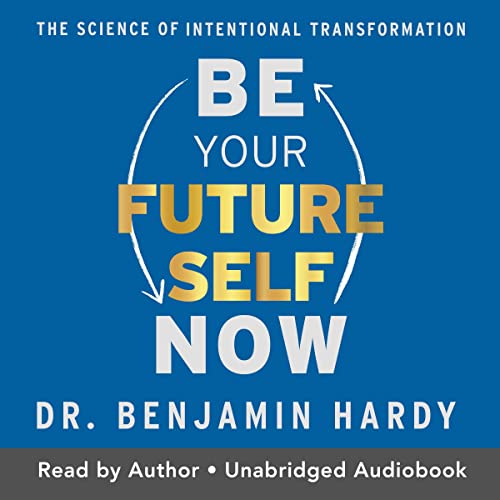
Right, because you have to buy low and sell high. If you’re going to sell high, that means you have to do marketing and find a hungry audience to sell your cheeseburgers to.
The good thing is that selling has never been easier. Back in the day, we used to have to teach people how to build a buyer’s list and build different lists of people. Even when I get properties, I can put it on Facebook Marketplace, Connected Investors, or if I own the property, the MLS, and it’s just gone in less than a month.
Real estate’s good because it’s more liquid than ever, but that means it’s harder to find the deals. Most people just look at the MLS. The MLS stands for My Listing Sucks if you’re a real estate investor.
Yeah, funny. MLS is the last thing you want to look at if you’re looking for deals because there aren’t any.
Yeah, you’d have to bank off appreciation. They are being minded right now by hedge funds and stuff. You get to go off-market pre-LMS properties.
I know this isn’t a real estate episode, but I’m curious: how many phone calls do you need to make to get a yes? Is it hundreds? Is it thousands? Is it 50?
The thing is, we have case studies on every different number. One individual logged into Connected Investors, got our deal-finding software, and cashed a check within 72 hours. It was like his second phone call—someone who wanted to sell ten properties. He made an offer the next day and sold it to someone from Connected Investors, who sold the contract the next day. He’s like our poster boy because he did it faster than ever.
What you are saying is he didn’t even buy the property himself. He just acquired the customer. The person selling the house or properties without even doing the deal of closing on the properties. He just gave that for a fee to someone else on Connected Investors.
Airbnb’s short-term rentals are really good, but it’s getting slightly saturated. It’s not as rose-colored as it used to be, but it’s a great strategy.
He got the yes. He got the contract. He sold the contract. Now, the person he sold the contract to had the ability to purchase that house at a discounted property. That’s called micro-flipping or wholesaling. It happens all day, every day. That’s where a lot of people start. People who are good marketers start there as well because they don’t have to deal with any of the fixing with any of the financing. They just do a few of those. After you do one or two, you’re like, “Man, I want to keep some of those properties.”
I’m missing out.
The idea is passive income, where you can have money coming in forever. That’s the portfolio I have right now of money coming in off those forever. The rents keep going up. The properties keep getting more valuable, so it’s you wholesale so you can start holding. The idea is to build up that passive income while doing anything else.
Real estate is something you can do while you’re running another business. People have every excuse in the world on why they don’t do it. That’s okay because I’ve had those excuses, too, but you just want to make sure that you have an actual plan to retire.
My thought process is, “I’m going to try all this crazy stuff, but worst case scenario, I can fall back on my real estate. By 60, I’ll have 82 paid-off houses, and I’ll be fine.” Now, I got lucky because I did that, and I had a huge tech exit, and my tech company was making multiple seven figures.
Real estate was always kind of like the fallback for real life. A lot of you guys probably have good jobs. To me, a job is very risky because it’s not up to you if you have a job next year. Look at what’s happening with all the actors striking right now. Have you seen that? Basically, AI is coming in, and if an extra comes in and is in the background once, they sign a piece of paper, and now that movie company can use them in the background of any movie. They’ve just eliminated extras and even small speaking roles.
The whole acting industry is in an uproar right now because they are about to be replaced by artificial intelligence. I wish them the best of luck, but I don’t think they have a chance in hell long term. They could hold it for another handful of years, but that’s the type of stuff happening right now. Having a plan B is not even a luxury anymore, in my opinion.
Real estate is something you can do while running another business.
When did you start Connected Investors?
In 2005, I bought the domain name. In 2006, I launched the worst site ever with a typo across the front because instead of Connected Investors, it said Connected Inventors, which spell check didn’t catch because it was technically right. I think it was a good idea. If anyone wants to launch Connected Inventors, the idea is still open. I launched a site with no technical ability or background. I made many mistakes along the way, but I kept pushing.
SEO was one of the single biggest mistakes that Connected Investors made because we were initially a closed social network where our content wasn’t supposed to be syndicated. Then we tried to open it up, and it just never clicked.
We found the best of the best, yours truly, right here, and we got things a lot better. I have high hopes for the future when it comes to SEO.
How did that come about? You ended up hiring me and my team to help with SEO, and what was your experience?
We did a lot of diligence on many companies, and I worked with different individuals in this space. A lot of people were telling me what I wanted to hear, just giving me shortcuts on SEO, little bumps. Every single one of those shortcuts wound up adding a year to our real plan. Mr. Spencer here told me like it was, and he also had a lot of experience in getting results for similar companies. I was really excited to work with them.
We definitely turned things around, then made more mistakes—nothing to do with you. Our tech team just did not have an SEO-minded person who was also a developer on staff. Take in mind that our site had 100 million pages, so this was not just a little WordPress site, but those little WordPress sites were eating us for lunch. I’m not degrading the value of those. We had just not had an SEO plan in place from the get-go. Untangling and rebuilding it takes quite an expert, and it’s harder than just building it right the first time.

There’s an old expression, an old adage, “Less is more,” and having 100 million pages when there’s thin content and duplicate content and a lot of cannibalization and so forth, the name of the game there is content pruning. That was a lot of work. How did you sell SEO internally? Because you weren’t just the person calling the shots. You had First American owning the company.
Yeah. I had never worked for a real company before. Anyone who works for a company and you have a workday and HR, I had never experienced the pain of that before. I started in BMX, got into real estate, and started my own company, so I never had to ask for permission. I had to get results and grind, working many nights until the next day.
When I sold the First American, I had a few years where I had to help guide the ship, and I never had to deal with budgets before. I’m not the best person to answer the question because I was absolutely horrible at working through the chain of command in a publicly traded company with multiple layers.
Around budget time, I just pushed hard on how important SEO was. I was like, “This is our biggest opportunity” because, when I left the company, I knew that it was going to be tough for them to continue to market in the way they had before because I don’t compare myself with this gentleman, but I was the Elon Musk of my little company. I came up with the product. I worked with tech, I worked with marketing, and I was the voice. I was able to get things done and was very good at marketing and paid ads.
Real estate was always like the fallback for real life.
You were the face of the company.
Exactly. Even though I wasn’t on the main website, I tried not to be the face, but anyway, I was internally and externally. External face is one thing, but also internally, I was making all the decisions in the products. I figured if we could just get SEO going right, it could help them balance a loss of some traffic they may see or may not see once I kind of stepped away. It was just me trying to hedge the bet and leave the company in the best situation I could.
I look at SEO as if you’re going to war; it’s like the Navy. Once you have good SEO just right offshore, it’s refueling everyone, it’s just firing shots in, you have your ads, you have your ground troops, all these different tactical things, but SEO just keeps you refueled and keeps you going when times are hard when you’re making those shifts in your business. If you have the traffic coming in from SEO, that’s fantastic.
It’s a trust factor. It’s a brand play. If you’re showing up and people are Googling your keywords, you are that keyword. That’s why when I went to build my next company, my charity, we were all SEO first to make sure we were launching it correctly from day negative 400. From a year before we launched, we’re talking SEO. We’re getting that part in place because I understand how hard it is to unwind when you do it incorrectly.
It’s like building a house and having to wire it later with electrical. Then, tear out the drywall to clean. It’s just a horrible mess to clean up.
Yeah, then you have a light switch in one room. That’s for another room. People are like, “This is all wrong.” You’re like, “I know I messed up.”
SEO is pattern recognition and pattern utilization. If you can spot the patterns before you lay all the foundation and everything, you’re going to be in so much better shape. That’s one of your strong suits is your pattern recognition. We were talking about this before recording, like how you use your journals to see what you do this year, this day, or this month compared to previous years. You’re tracking this, and you’re seeing the improvement, and you’re seeing the patterns, and then you’re making course adjustments because of it. I think that’s brilliant.
Once you have good SEO offshore, it’s refueling everyone. It’s just firing shots in.
We can get deep on a philosophical standpoint, but you are your patterns. You are your habits. You are orbiting around certain things. Gravity has got you pulled in certain directions. When you start to reflect daily, and you can read back, you can see the things that you’re orbiting around. Sometimes, you just have to break free. You’re orbiting around your habits. That’s kind of the gravity.
When I did the Ironman, there was this point where my business had plateaued, and it was doing fine, but I couldn’t get to the next level. I just want to do something that will change every day of my life. I wanted to put a little wobble in the wheel to get on a different trajectory, and I signed up for the Ironman Triathlon. I couldn’t swim. I could bike. I could run. So, I had to get a swim coach.
When you say you couldn’t swim, you didn’t know how to swim?
I couldn’t swim like a swimmer. I can get from one side of the pool to the other, but that’s a lot different than understanding how to breathe and actually swim correctly. What that did, though, is it made every day of my life different. It broke me from some habits, and through that, I met a gentleman who was the CEO and founder of a company called LendingTree, and we became buddies through the pain of training for an Ironman.
He had revolutionized how you shop for a home loan. In 2000, you could press a few buttons and have multiple lenders competing. Before that, you had to go from bank to bank. We launched the same thing for the real estate investment world because he wasn’t in the investment world. He only connected you with banks. Our platform connects you with non-bank private lenders that want to give you the money you need to fix and flip or buy and hold properties. If you’ve got a good deal, that’s how you solve the money problem.
Doing that completely changed my business. We had some of the best years of our lives. We were able to buy millions of dollars in traffic and liquidate it very quickly. It changed my whole life, but I changed a major part of it, and there was just something new that came into my orbit. But yes, you are a pattern. It’d be cool if you could draw it out. AI may be able to do it for you one day.
If you're actively building your real estate portfolio, you need to generate cash flow through your properties. You should look for rental properties in areas with high demand for rentals. Share on XIn that five-year journal, I have where I just wrote three sentences about my day. I grade myself on a few different things. Then, when you look back over a few years, you’re like, “Wow, I’m doing the same thing today that I did three years ago.” You can course correct, or you can be like, “This is right where I want to be.”
It’s funny you’re sharing how you got your car maintained on this same day.
Three years ago. Three years ago, and it was the same day. It was three years in a row.
Oh, three years in a row?
Yeah, that’s what I’m saying.
That is bizarre. There are no coincidences. There’s something to that. I don’t know what the meaning is of it. The universe works in mysterious ways. But, wow, that is so cool. How did you come across this five-year journal, or did you just make it up?
No, it’s through stoicism, that kind of ancient philosophy. Stoicism is like an entrepreneur’s operating system. The obstacle is the way. Listen to the Meditations summary. I listened to it quite often. It will blow your mind. The last Great Roman Emperor had a private journal that was published, and it was filled with all sorts of wisdom.
You said journal summary. Where do you get the whole thing?
The whole thing, it’s six or seven hours. If you just listen to that summary, if you like that, jump into the rabbit hole. If you don’t, stoicism isn’t for you. It’s just a great philosophical way of thinking, a way of enjoying the struggle, and then life becomes great when you enjoy the struggle because everything is the struggle. That’s the growth. Those are the stories you love to tell once you’ve made it to the other side, all the times you almost lost it all. It’s through stoicism.
Also, my wife had one, and then I saw it in Stoicism, and I’m like, “This is great.” It’s quite a gift to have just three or four sentences about each day. My first sentence is I just wrote something I was thankful for that day. It keeps you in the mindset of having gratitude, writing a few things you’ll never remember.
You probably don’t even know what you did last Tuesday, but I can at least get a little summary of what I did. There’s something also great about writing it down with a pen and paper and getting off technology. It’s a great way to reflect.
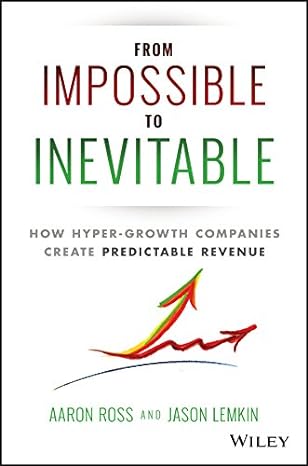
By the way, I do something similar. This is my reMarkable tablet, and I put on here a daily gratitude journal. I call it my God journal. I write to God, and I thank him not just for the obvious blessings, the revealed blessings, but the unrevealed blessings, in other words, the challenges. Because if I write down the challenges as things I’m grateful for, that helps me not only to appreciate them but to shift my perspective and see their benefits.
Sometimes, for people, it takes years or decades or maybe the end of their lives, and then they finally recognize, “Wow, that was the best thing that could have ever happened to me, even though it was one of my darkest days.”
Yes, that’s genius. I really like that. I don’t do that daily, but in my 12-month financial and personal planner, I have this section that says, “If I didn’t,” and you fill it in with something negative, “then I wouldn’t have,” and you fill it in with something positive. Then, you write down a negative thing you’re going through now and the positive outcome you’d like to have.
This life is crazy. You might be sitting there and be like, “This guy, Ross, is so great, man.” We’ve had some of the toughest times out there. To find blessings in those tough times, you’ve kind of cracked the code there, and that actually would kind of sum up stoicism a little bit for sure. There’s some real nuggets there.
Being successful in anything is just your habits. Like Dave Mirra, he was number one here, and he took those same habits into rally racing and boxing, and you’ve probably seen evidence of that through other people in your life having those good habits, reflecting, and adjusting. Those are the really important things. Because if not, you’ll just keep orbiting around the same stuff, and there you go.
Marketing and branding are a big part of every real estate success. Share on XThere’s this expression that, “Your habits become your thoughts.” I forget the exact flow of it, but I remember the end of it, and it’s like, “And these ruts then become graves.” Because you’re writing patterns into your brain synapses into your wiring by reinforcing them, doing them over and over and over again, and those become ruts, which then become graves.
Wow. That’s definitely powerful. In that financial planner I was talking about, I have certain questions to ask yourself. A question to ask yourself is, “Why am I so successful?” People always say, “What’s wrong with me?” Have you ever said, “What’s wrong with me?” If you say, “Why am I so successful,” you start looking, and you start thinking differently.
To be completely candid, just being on podcasts like this, people say, “Hey Ross, how are you so successful in this?” There’s this crazy benefit to where I get more successful because people are asking me how I was successful. It’s this weird reinforcing thing, but you don’t need to be on a podcast to have that happen. You can manufacture that on your own with the questions you ask yourself. You’ve been touching on that. I’m going to adopt that into my journal. That’s powerful.

The thing that made the biggest difference for me, and it did at the time, was the challenges made the biggest difference, but then that became a pattern. Now I remember the expression, patterns or habits; either one becomes grooves, which become ruts, which become graves if they’re bad habits.
The challenges aspect of journaling was a big breakthrough, and it changed how I think about challenges as I’m facing them without having to write them down and reflect on them. Now, the biggest benefit of daily journaling in my God journal is writing down the messages that I receive. I get constant feedback from God and my unseen support team.
I can tell things are not random. When stuff keeps showing up, for example, it seems silly and small to some of the more materialistic folks listening, but they’re probably not listening because they’ve been turned off by all my woo-woo stuff already on other episodes. Just this morning, my son, who’s three, was playing in the living room. I was looking on my computer at an email to see who the guest would be. She’s based in Orlando. She’s a functional medicine doctor for my other podcast.
She was referred by a client and friend who is also a past guest on Get Yourself Optimized. I’m looking at this, and I’m feeling intuitive that I’m supposed to also recommend she get on my wife, Orion’s, podcast on Stellar Life, but I wasn’t sure I hadn’t tuned in and got the confirmation. Within a couple of minutes, I’m thinking about this and then looking at other emails and then my son just randomly, out of the blue, mentions the word Orlando.
He’s three. We live in Miami. We don’t live in Orlando. We went to Orlando about a month ago for a week or five days. We were at the biohacking conference, but just out of the blue, within several minutes of me contemplating what to do about this guest. “Should I have her on Orion’s podcast?” Then, my little son mentioned the city that she was in.

Those things, if you’re tuned in, then you can connect the dots and feel like, “I’m getting some guidance here because you are.” That’s the breakthrough for me. I write this stuff down every morning, all these messages I’m getting, whether it’s coming directly from intuition, from above, or it’s like some coincidence, some synchronicity or something, I’m writing all this stuff down, and then I can review it later, which I do.
I review these past entries from the last week or a couple of weeks and say, “Okay, well, did I do something with that sign or that intuition I received two weeks ago and wrote down? Oh no, I didn’t. Okay, I should do something about that.” That’s not just a “Hello. Hey, we’re here.” We live in a world of action. That’s been a breakthrough for me.
That’s powerful. The fact that you’re open to those things and you’re actively writing down you’re open, and you’re looking for those things, it’s definitely a guiding force. Once you’ve developed your intuition and can start cutting through the clutter, it’s very freeing.
You might be saying it’s all coincidence, or he’s just whatever it is, but it’s not. That’s why some of the most successful people say they have it, the it factor. What is that factor? It’s the ability to use intuition and to see around the corner because you’re open to hearing those messages and the fact that you’re thanking the universe for gifts.
The ultimate gift comes through lessons. Thank the universe for the lessons coming your way.
If someone gave you a gift and they didn’t thank you for it, you might not want to give him another one. The ultimate gift is lessons. You’re also thanking the universe for the lessons coming your way. I love your routines. That’s awesome.
Yeah, thank you. Something you said, and I want to piggyback on, looking or seeing around corners, and one big lesson I got within the last year keeps getting reinforced by more lessons that keep knocking me on the head about this. Rather than trying to predict the future, create it. Because I get so hung up on trying to predict the future, trying to receive prophecies or something. That is not the way the universe is supposed to work for us. It’s supposed to be a manifestation, and what you focus on is what you create—the law of attraction.
If you’re creating your reality, you don’t have to predict it because you’re programming it into your politics simulation.
I love that. Everything you’re saying is spot on, and everyone has their own way of tying this in, but it all starts with journaling and reflecting. You’ve probably been journaling for a long time, optimized what works for you and taken bits and pieces from others. It’s nice once that becomes part of your life, for sure. It helps in business and relationships, for sure.
The A Summary of the Meditations of Marcus Aurelius, I think, is a really easy, good starting point for our listener who’s not deep in this stuff. It’s $3. It’s narrated by Robin Homer, and on Audible, it’s 33 minutes long. Certainly, that’s a reasonable amount of time. You can afford that time instead of listening to some random podcast episode like this one.
It’s free on YouTube. There’s this guy with this semi-English accent that just does a great job.
Either I’ll find that on my own, or if I don’t find it easily, I’ll get the link from you.
Looking back on my life, Think and Grow Rich was the first book I read that I fully adopted into my psyche. I still read that once a year and found stoicism further down the line. Those were two big mental mile markers. Think and Grow Rich teaches you how to create your reality and just bring into existence what you want and kind of a formula for that. Then, stoicism helps you with the actual tactical aspects of doing those things. I wish I’d found them closer together, but the time was right for me. Those are two really big, important books there, for sure.
Napoleon Hill wrote that a hundred years ago or something, right?
1930-ish.
So, 90 years ago. Speaking of about a hundred years ago, one of my favorite books about this illusory world and how to program the matrix is The Game of Life and How to Play It. It’s by Florence Scovel Shinn, and it was written in the 1920s. She was just so ahead of her time. Incredible. I love that book.
Oh, wow. A female author back then, that’s awesome. I’m definitely going to dive into that.
There is a YouTube audio version on Master Key Society’s YouTube channel.
When I give you guys my free course, I also have my 12-month financial and personal planner. It is basically Stoicism, Think & Grow Rich, and habits. It’s everything that we’ve talked about in a PDF that you print out, and you write in your goals, and then you can do your daily stuff from there.
I’ve been obsessively working on this for a while because part of what we do with our charity is we help people that are financially downturn their lives around. I need to know certain things about people. I need to figure out what their goals are and stuff like that.
I use it personally. My closest friends use it as well. Then we’re using it with other people to try to help get some of these habits we’re talking about into something tactical every day that equals spendable cash.
Yeah, that’s awesome. Thank you for that. I’m sure that’s going to be awesome for people. One thing that you said I want to circle back on. It’s just so important. You did something remarkable when you decided, “I’m going to sign up for the Ironman,” and you didn’t even know how you were going to complete it. You didn’t even know how to swim that kind of distance.
Real estate is a vital component of your portfolio. Share on XThat’s what I learned is called a forcing function. I learned this from Aaron Ross. He was a guest on this podcast, and he wrote the book From Impossible to Inevitable—a phenomenal book, phenomenal guy, thinker, and humanist. He’s awesome.
This forcing function is, “Okay, I’m not just going to sign up for the gym to lose weight or to get fit. I’m going to announce to all my friends, family, fans, and everything on social media that I’m doing this.” That’s a forcing function. You didn’t just sign up for the gym or something. You signed up for the Ironman. I think that was a forcing function. If you need to break a habit, pivot, or do something really big, I think a forcing function is one of the best ways to interrupt the old pattern and replace it with something new.
Thanks for underlining that. I get really weird when I hear people say, “Oh, don’t tell people what you’re going to do. Show them.” I get that, and that could work for some people, and there are all different personality types out there, but social accountability is a really big driving factor for me personally.
If I tell ten people I signed up for the Ironman, I know I’m going to see them again, and they’re going to say, “How’s the Ironman training going?” If I had to say I quit and make up some lame excuse or maybe a real excuse, then it’s an extra way to stay motivated, having social accountability. Having a community of people that if you don’t show up, they say, “Hey, Ross, where were you yesterday? We did a hundred miles on the bike. You said you were going to be there.”
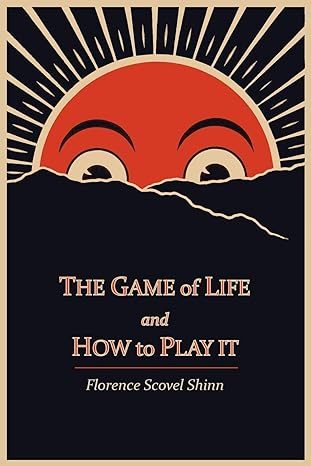
When I rode BMX If I didn’t show up to the skatepark on the weekend, I’d go to school, and they’d be like, “Oh, what’s up, poser? That was like a big diss back in the day. It’s you missed out on this and that.
Actually, one thing that I did very early on was that it took me a decade to realize how powerful it is. Before I had done my first real estate deal, I’m not quite sure where this falls in the mental psyche here, but I said, “I’m going to be a real estate millionaire. I know I’m going to do it. People are going to want to know how, so I’m just going to write it down.”
I started to write a book on how to become a real estate millionaire before I had done my first deal. It’s called Real Estate Investing in Your 20’s. That’s part of what I’ll give you. I’ll give you that book, but it’s the only real estate book I’ve ever seen written during the journey rather than after.
That’s awesome. I could just totally hear these guys giving you a hard time in high school, “Poser, poser,” while you’re writing about how to become a real estate millionaire.
It wasn’t until college. It wasn’t until after I broke my leg. “I’m going to do real estate. There’s no turning back.” To put myself in the mind frame that, “I am going to do this, I’m going to write it down,” and then it just goes with writing it down.
I remember that icon stayed on my desktop for years and years. If you’re where you are, you can write a book on how to go from being a broke truck driver to being financially free in two years. You can start writing that book.
I wrote Real Estate Investing in Your 20’s. I wanted to be a real estate investor, but I didn’t do it in the 30s or 40s. I did write a few other books, but I probably should have kept that theme going anyway. It was a really powerful mental exercise on putting myself in the future. It’s kind of like when you write yourself the check. I’m going to cash a million-dollar check on this date. It’s a fun exercise, but writing the book was something else.
If you own a property, you're a real estate investor. If you paid full price, you may not be a good real estate investor. Share on XWriting that book was the main reason that I started Connected Investors. I was writing this book, and I’m like, “I wish I could connect with other investors that were 20 years old, but there wasn’t a way to do that. What if there was a social network?” That’s what started that process.
It’s easy to look back and see where the dots were, but just moving forward, holding yourself accountable, having that intuition, it’s like, “I’m going to do this. I’m going to write it down.” There wasn’t 1% of me that didn’t believe it. That’s kind of a fun place to be, but you have to be able to convince yourself first before you can convince anyone else.
There’s this great book that I’m thinking about, and there’s no coincidences. I just happened to be thinking of this book, and then I looked down. When I was searching on Audible to find that summary of Marcus Aurelius’s meditations, the first book that showed up was the same book I was thinking about. I probably should bring this up. Of course, no coincidences. Everything’s a sign.
It’s Ben Hardy’s book, Be Your Future Self Now.
I love it.
You can communicate with that future self, and you can get input and guidance from that future version of you. You could write letters to that future self. You can receive telepathic communication from that future self. It’s a bi-directional channel. It’s a phenomenal approach and a phenomenal book. I think everybody should be doing this.
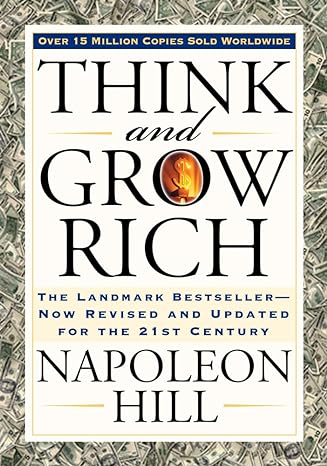
It’s funny because in Think and Grow Rich, there’s a part of it that a lot of people don’t talk about, and maybe it’s not even in the main book, but it’s about kind of creating your own mastermind of people that aren’t even alive right now. I call it the mental mastermind, and it’s a meditation practice.
I did that for years, and my future self was in that mastermind, helping me stay accountable. I just remember it was like even when I was working my hardest, I just had my daughter, and I would take off one day a week, every week, no matter what, just to spend time with my daughter.
My future self was like, “Ross, when you are 70, you’ll take out a loan plus all of your money to have one day with your five-year-old daughter and your wife at that stage in your career.” I would always find the time. I might make it up and work until three in the morning, but just having that time and having all those videos was quite a gift, which came from the exact exercise you’re talking about.
That’s so cool. It feels for some of our listeners to be pretty out there to imagine you could have somebody who is, say, a legend who passed away, like Steve Jobs, on your own personal mastermind and your future self as well and so forth. You’re collaborating and brainstorming with this group of beings who are no longer incarnate.
If it’s your future self, it’s not in this reality that this being is incarnated. You have, or you have not now, and you’re communicating with folks in the not now. That might sound fantastical to some of our listeners, but others would be like that’s a great idea. I’m going to give that a go. I’m down for that.
It’s a fun thought exercise. What I did is the people that were in my mastermind. I read their biographies. My mental mastermind, I studied them. It wasn’t just someone cool because you have to be able to have conversations, not just between you and the person, but between the person and the other person.
I would envision someone showing up a little bit late and just trying to get in the actual mind frame of sitting down with these individuals, and they’d give me a hard time. It wasn’t all good. It was some tough love, but it’s like a WWJD thing on steroids with multiple people.
It’s just a really good thought exercise and helps. You’re getting out of your own way. You’re out of your own ruts, your own thought patterns, and you’re coming at a problem from a different direction on someone who seems like they can touch their tire to the ceiling. You know the answers. That’s all these are doing. You have the answers inside you somewhere. These are just helping you pull them out and get out of your way.
That’s awesome. I know we’re out of time, but what a lot of unconventional wisdom and not just whiz-bang marketing tactics using ChatGPT, which everybody else is doing. This is the stuff that moves the needle. This is why we’re here, to have breakthroughs of these sorts of kinds, not in hacking some sort of funnel or using some AI tool. Thank you for that.
This was great. Thanks for having me.
Thank you, listener. Thank you for being open-minded enough to stick around to the end and take this stuff on board. We’ll catch you in the next episode. I’m your host, Stephan Spencer, signing off.
Important Links
Connect with Ross Hamilton
Apps and Tools
Books
Businesses/Organizations
People
Previous Marketing Speak Episodes
Previous Get Yourself Optimized Episode
YouTube Videos
Your Checklist of Actions to Take










About Ross Hamilton
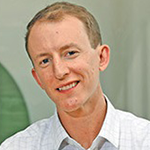 Ross Hamilton is a successful entrepreneur known for his achievements in real estate and technology. He founded Connected Investors, a platform for real estate investors, which he later sold for nearly $100 million. Now, he focuses on using technology and finance to address affordable housing issues through non-profits, leading a team of real estate experts with a philanthropic mission.
Ross Hamilton is a successful entrepreneur known for his achievements in real estate and technology. He founded Connected Investors, a platform for real estate investors, which he later sold for nearly $100 million. Now, he focuses on using technology and finance to address affordable housing issues through non-profits, leading a team of real estate experts with a philanthropic mission.







Leave a Reply